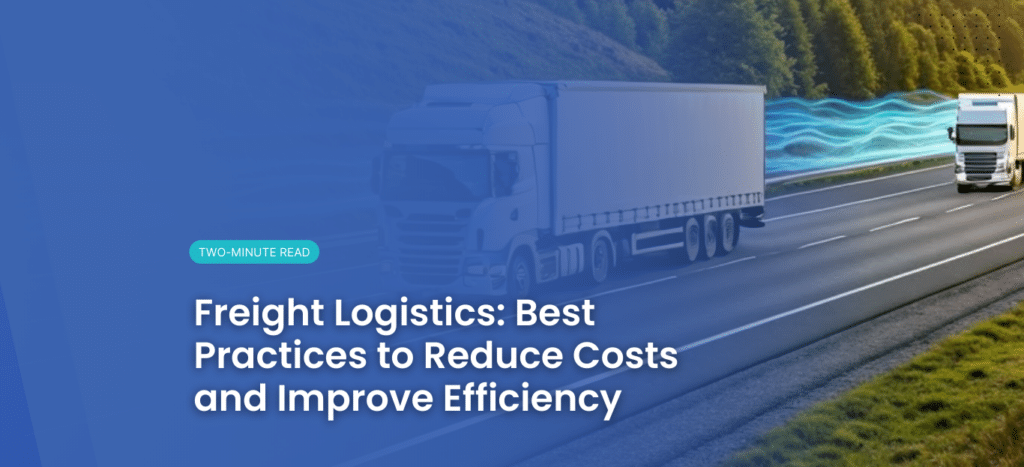Introduction
In today’s fast-paced global economy, freight logistics plays a crucial role in ensuring goods move efficiently from suppliers to customers. However, businesses often face major challenges such as rising transportation costs, inefficient fleet management, regulatory compliance issues, and lack of real-time tracking.
Without a well-structured freight logistics strategy, companies risk delays, increased costs, and unhappy customers. The good news? With the right technology and process optimization, businesses can streamline logistics, enhance visibility, and drive profitability.
Let’s explore why freight operations is a critical issue and the best solutions to optimize your operations.
Why Is Freight Logistics a Critical Issue?
A poorly managed freight logistics system can have severe consequences on businesses, including:
Main Challenges in Transport logistics:
- High Transportation Costs – Fuel price fluctuations, maintenance, and inefficient routing increase operational expenses.
- Limited Real-Time Visibility – Without proper tracking, companies struggle to monitor shipments and react to disruptions.
- Compliance and Regulations – Logistics providers must adhere to complex customs, safety, and environmental regulations.
- Supply Chain Disruptions – Issues like port congestion, truck driver shortages, and geopolitical factors impact delivery times.
- Sustainability Concerns – Growing pressure to reduce carbon emissions and implement green logistics practices.
Industry Data:
- Freight costs represent up to 60% of total logistics expenses in most industries.
- Companies using real-time tracking reduce shipment delays by 26%.
- Fuel optimization technology can cut costs by up to 15%.
These challenges emphasize the need for a data-driven and technology-powered approach to freight logistics.
Effective Solutions for Freight Logistics Optimization
✅ 1. Implement a Transportation Management System (TMS)
A TMS software, like CADIS, automates dispatching, shipment tracking, and cost management, improving efficiency and reducing human error.
✅ 2. Optimize Freight Routing with AI & GPS
AI-powered route planning reduces mileage, lowers fuel consumption, and enhances on-time deliveries.
✅ 3. Improve Fleet Management & Maintenance
Regular fleet maintenance, real-time diagnostics, and driver performance monitoring prevent breakdowns and costly delays.
✅ 4. Enhance Visibility with IoT & Real-Time Tracking
IoT sensors provide live shipment data, helping businesses anticipate delays and reroute shipments efficiently.
✅ 5. Adopt Green Logistics Strategies
Switching to electric/hybrid vehicles, optimizing load capacity, and using carbon-neutral shipping solutions reduces environmental impact.
By integrating these solutions, companies can enhance supply chain performance and gain a competitive edge.
Benefits of Implementing Freight Logistics Solutions
Optimizing goods transportation logistics brings measurable benefits to businesses:
✔ Cost Reduction – AI-driven route optimization reduces fuel consumption and overall expenses.
✔ Improved Delivery Performance – Real-time tracking minimizes delays and enhances customer satisfaction.
✔ Enhanced Resource Utilization – Maximizing vehicle capacity and load balancing improves efficiency.
✔ Regulatory Compliance – Digital record-keeping simplifies audits and compliance checks.
✔ Sustainability & ESG Compliance – Reducing emissions helps companies meet environmental targets.
With a robust freight logistics strategy, companies can improve operations, lower costs, and future-proof their business.
Frequently Asked Questions (FAQ)
1. What is freight logistics?
Freight logistics refers to the process of planning, managing, and optimizing the movement of goods across supply chains to ensure efficient delivery.
2. What are the biggest challenges in freight logistics?
Common challenges include rising costs, lack of visibility, regulatory compliance, and supply chain disruptions.
3. How does a TMS improve Freight distribution?
A TMS automates shipment planning, tracking, and cost control, reducing inefficiencies and optimizing routes.
4. How can businesses reduce freight costs?
Companies can lower costs through route optimization, fuel-efficient vehicles, real-time tracking, and better carrier negotiations.
5. What role does sustainability play in Freight supply chain?
Sustainable logistics practices help reduce carbon emissions, optimize loads, and implement eco-friendly transportation solutions.
Conclusion
Effective freight logistics management is essential for cost reduction, improved efficiency, and sustainability. Companies that integrate TMS solutions, AI-driven route planning, and real-time tracking achieve significant operational improvements.
👉 Ready to optimize your freight logistics? Contact CADIS today to discover how our TMS and logistics automation solutions can help you streamline operations, reduce costs, and enhance visibility.
Let CADIS empower your route planning for maximum efficiency and customer satisfaction.





